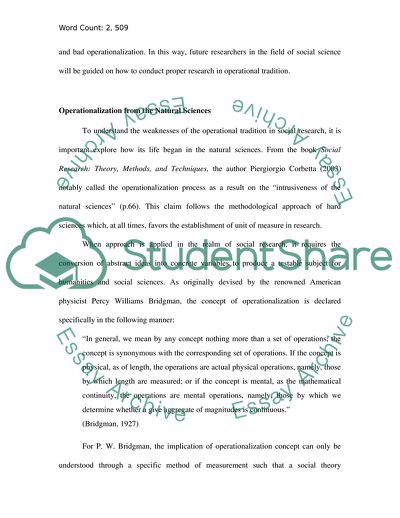Cite this document
(What are the problems with the operational tradition in social Essay, n.d.)
What are the problems with the operational tradition in social Essay. Retrieved from https://studentshare.org/sociology/1758214-what-are-the-problems-with-the-operational-tradition-in-social-research
What are the problems with the operational tradition in social Essay. Retrieved from https://studentshare.org/sociology/1758214-what-are-the-problems-with-the-operational-tradition-in-social-research
(What Are the Problems With the Operational Tradition in Social Essay)
What Are the Problems With the Operational Tradition in Social Essay. https://studentshare.org/sociology/1758214-what-are-the-problems-with-the-operational-tradition-in-social-research.
What Are the Problems With the Operational Tradition in Social Essay. https://studentshare.org/sociology/1758214-what-are-the-problems-with-the-operational-tradition-in-social-research.
“What Are the Problems With the Operational Tradition in Social Essay”. https://studentshare.org/sociology/1758214-what-are-the-problems-with-the-operational-tradition-in-social-research.


